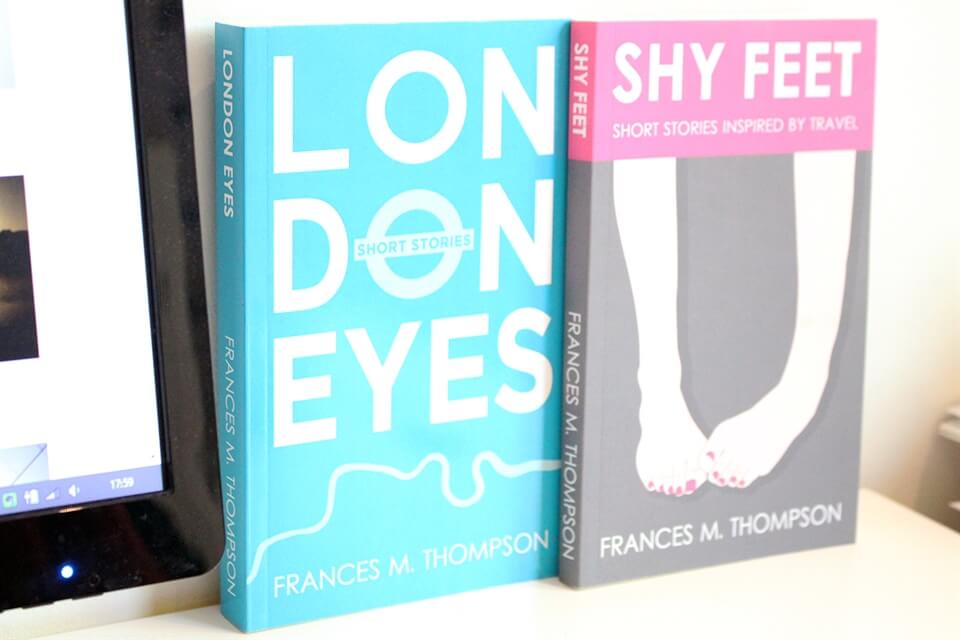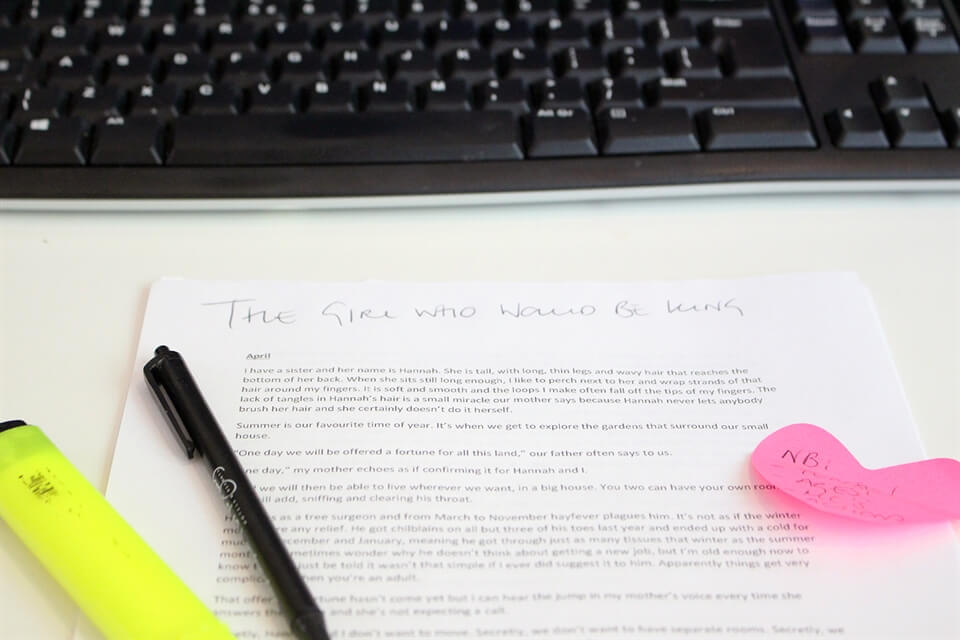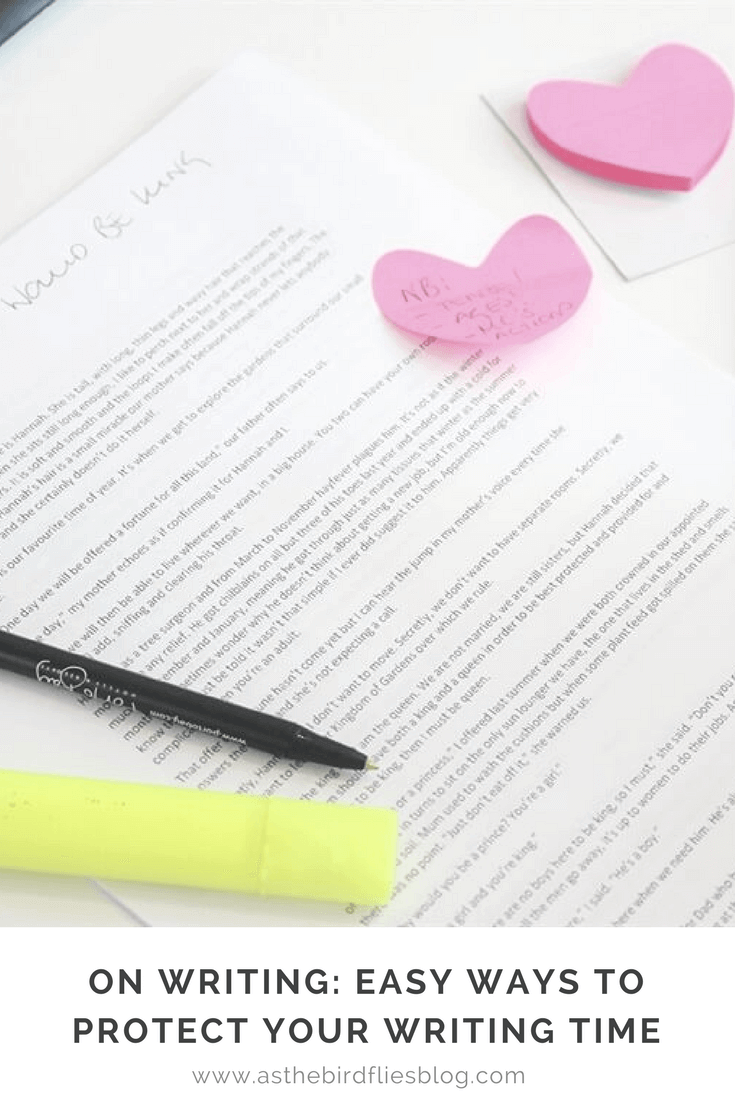On Writing: How to Protect Your Writing Time

I've been reading a lot of articles sharing advice about how anybody wanting to pursue a career as an author must be protective of their writing time. I agree. It's proved essential to me in order to get books finished and up to a standard I can be proud of. One quote that stayed with me (and I shared it with newsletter readers last month) was this one as originally shared by Austin Kleon.
"You must have a room, or a certain hour or so a day, where you don’t know what was in the newspapers that morning, you don’t know who your friends are, you don’t know what you owe anybody, you don’t know what anybody owes to you. This is a place where you can simply experience and bring forth what you are and what you might be. This is the place of creative incubation. At first you may find that nothing happens there. But if you have a sacred place and use it, something eventually will happen." - Joseph Campbell on having a “bliss station,“ in The Power of Myth
(I love how he calls it a "bliss station". It makes it sound as happy a thing as it should be.)
However, how do you actually do this? When you have other priorities in your life - family, friends, work - how do you make sure you protect the time you give to writing, be it 30 minutes a day, several hours a day or just a few hours a week? I'm especially intrigued by this because of the huge change I'm about to undergo as I become a mum. I know my writing time will reduce significantly and I plan on taking a break for (at least!) a few months in order to enjoy the change and to not have any pressure on myself. But I also plan on returning to writing regularly, and how I do this will rely heavily on the following things I've learned to do to protect my writing time thus far. I wanted to share them with you today.
Tips for helping you protect your writing time
It goes without saying that these tips will only help if you already see writing as one your priorities. If writing is just a hobby - and I totally get this, it's a fantastically fun hobby! - or something you're dabbling in for another reason then it's unlikely these tips will work or stick. That said, they should also help anyone looking to protect any kind of regular time spent on a creative activity or project.
1. Always see the bigger picture.
Reminding myself of the bigger picture is my number one way of ensuring I protect my writing time. It will probably be yours too.
Not long after I made a commitment to start writing my first book Shy Feet, beginning with my first NaNoWriMo experience, I was surprised by how quickly I start to regard this dream of mine as a chore. While I had dreamed of writing a book for decades, I quickly began to see the act of actually doing so as anything but dream-like, and not just because the actual work required is intense and demanding. It was because it was yet another thing I had to do regularly. It was like answering email, doing my accounts, While I often enjoyed it much more than these things, writing became yet another routine, relentlessly regular activity I had to do.
But it wasn't, was it? Upon reflection, I now know that every single minute I spent on Shy Feet was 60 seconds incredibly well spent. The same goes for the minutes I spent on London Eyes and the minutes I know spend on my novel and on the Twelve collection of stories. All of these thousands of minutes were and are pushing me towards a place I want to be. I don't know what that place looks like exactly, but I know it features many more books and many more minutes of hard slog-like work.
More books is my bigger picture. I can't stand the thought of not putting some of my ideas down on paper for others to read. If I really indulge this thought, it keeps me awake at night. How could I leave this world without telling this or that story? That's all I need to think of to justify protecting my writing time, all other priorities allowing. For you it could be something else; a certain number of book sales, a certain daily word count, a certain project goal. Keep this forever in your mind in order to then protect the writing time that will make it materialise.

I remind myself of my bigger picture by having a copy of London Eyes and Shy Feet on my desk, beside my computer monitor, and every now and again I pick them up, flick through them, read a paragraph or two and remind myself of how much I can achieve when I get on with something. Before I had these books, I had post-it notes with quotes stuck to my laptop screen and I kept a note of my daily word counts in my diary so I could always see how much I was (or wasn't) progressing, and I still do this. Whatever you need to remind yourself of the bigger picture, make sure you have that always in sight, literally and metaphorically.
2. Start small.
It's much easier to protect a smaller chunk of time from distractions and interruptions than half a day or several hours. It will also be easier to get going if you know your time is limited. Furthermore, you'd be surprised how much you can do in 30 minutes when you're focused and committed to achieving something in that half hour.
3. Give writing a very high level of priority.
For a long time I fitted writing in around my work. When I finished client work I would then pick up my manuscript or add a few thousand words to a first draft. Or not, if I was too tired, or I'd worked too many hours and needed to go cook dinner or spend time with NewMan. This was fine and it got the job done in a stop-start kind of way, but now I am a bit more serious about writing and I want to increase my output, I've given writing the same level of priority in my diary as work.

I now plan when I'm going to write and block this time out in my diary. I normally have writing tasks scheduled in my diary for at least the three coming days or maybe even a week or more. This has helped me to both keep up a regular writing habit but it's also been very effective at stopping me from filling time I should be writing with other activities, for example, someone wants to go for coffee or have a Skype call in the coming days, I will say no if both my work and writing don't allow for it.
4. Switch everything else off.
I've said it before and I'll say it again, if you find it hard to ignore distractions, then don't have them anywhere near you. If you get as far as sitting down to a writing session, no matter how short, then don't then fill it with non-writing activities.
Get Cold Turkey or SelfControl. Leave your phone in a different room. Close the door. All you need to write is your head, your heart and your fingers. And a computer, type writer or notebook and pen.
5. Learn to say no.
One of the reasons I didn't write a book before I was travelling full-time was because I was always busy. Not because I had kids, multiple jobs or a long commute. I was busy because I made myself so. I lived in London and had wonderful friends spread across the city and until I met NewMan I was single for many years. Socialising and dating kept me very busy. When I wasn't working or doing something with a friend or a date, I was recovering in bed with a book or on the sofa with a bowl of cereal andthe Sex and the City box set. That was my life and I was happy. But I wasn't writing fiction, only dreaming of writing fiction.
If only I had said no to a few dates or nights out. If only I'd prioritised that small dream of mine. If only I'd realised what I know now, that by saying no to one thing, you're effectively saying YES to another.
That's what I remind myself when I turn down an invitation or a social engagement in order to stay home and write. It doesn't happen very often - my social life as a pregnant woman in Amsterdam is nothing like what it was like as a single lady in London! - but it's now second nature to me. It is of course easier said than done, turning down fun things you want to do for a night battling plot holes or crappy first draft prose, but this is what I meant in the introduction, if writing really is your priority, then put your money where your mouth is. Say no to say YES to writing.
6. Gather support of those you live with/are closest to.
My partner NewMan knows that when I say I'm going to get some writing done, that's time I'm not to be disturbed, at least, not for an hour or so. I'm lucky that that's enough to keep interruptions at bay. (This will of course change in the coming months, and I shall let you know what happens once there's a baby in the picture!) This works well because he also needs batches of uninterrupted, quiet time for his work and so I didn't need to explain why I needed this so much (see below).
Close family and close friends also get it. They know that when I'm writing, I'm working so I'm as unavailable as they are when they're at work. This kind of acknowledgement - and accountability! - will help you keep committed and protective of your writing time.

7. Understand that some people won't understand.
In contrast to the point above, it's also true that some people don't "get" why you write, and call writing work, when it's not your "full-time job".
They may understand the want or need to pursue something as ambitious or hedonistic as "becoming a writer" but they don't actually comprehend why you would actually sit down day after day (or most days!) and put in the work to achieve it. I've gone through several thought processes to try and understand this. Sometimes I think it's because society/media et al. teaches people to have ambitions, hopes and dreams, but aside from 2 minute movie collages, there are hardly any accurate representations of how hard it is to go about achieving what you truly want to in life. (Spoiler alert: You. Just. Do. It) At other times I have put it down to individual insecurities, or the way we get comfortable with our lives as they are, or that almighty fear of failure (all of which stopped me from trying for nearly 30 years). I've also seen a few people become uneasy about my writing and publishing my own books because I'm doing something they want to do and so it must be a little like I'm holding up a mirror to their faces and their not comfortable with the reflection. This is very normal and I relate to it more than I can explain here.
However, the result of this is that you cannot expect support or understanding from everyone around you, be them friends, family, colleagues or even strangers. People will see your decision to spend a weekend writing rather than going away with them as selfish. People will think it strange you choose working on a book still six months away from being published over going out for dinner with them. People may get annoyed when you don't return their call when they try to reach you during your writing time.
Let them. You've got writing to do.
Be selective with who you rely on to help you protect your writing time. As for the rest of them, don't say you're writing. This word may have certain connotations to them. Instead, say you're busy or working, because that's exactly what you are. You're busy working hard to chase your dreams.
8. Be firm but kind on yourself.
I wrote in this post summarising the lessons I've learned as a freelancer that being your own boss is a real skill as it normally demands much more of you than people realise. Yes, it may mean you can say "Take the day off!" to yourself, but it will more often mean you have to say "Get out of bed and get to work!". But it's also an opportunity to be the best boss you can be. The same rules apply to protecting your writing time. Be encouraging about your writing time; remind yourself why you need to do it regularly. Remember how good it has felt in the past when you've completed the first draft of something or even just put a few words down on paper. As the best boss you've ever had, you should also make sure your workspace caters to good writing time. Create playlists that go on for hours that you know you can work to (creating was one of the best things I did for my writing habit) and remind yourself to have water on hand and to reward milestones.
This all sounds very feelgoody, but if you're like this 80% of the time you'll naturally want to protect your writing time because your inner boss is making it easy to do so and making it an enjoyable, productive and rewarding experience. The 20% of the time that you become tempted to let the habit slip, that's when your inner boss needs take a firmer hand and tell you to step up and get shit done. At least that's how it is for me.

What other tips do you have for protecting writing time, or any other working time needed to pursue a bigger goal, like a new business venture or another creative project? I'd love to read your thoughts in the comments.
Would you like more writing tips? Read my secret ingredients for creating a regular writing habit, some advice for speeding up how fast you write, and here are the best apps to help you write!
And to save this post as a pin, please use the below image:

Photos of me working on last month's short story called The Girl Who Would Be King. You can read an extract from it here, and make sure you're signed up to my newsletter for more writing tips.

Frances M. Thompson
Find Frankie on Facebook, Twitter, Instagram, Pinterest, and Google+.
_x300.jpg?v=1) On Writing: The Year I Decided to Write for My Life
On Writing: The Year I Decided to Write for My Life On Writing: How to Earn Money by Writing Stories
On Writing: How to Earn Money by Writing Stories On Writing: What Are The Different Types of Editors?
On Writing: What Are The Different Types of Editors? Preptober Tips & 100 Preptober Prompts for NaNoWriMo Prep
Preptober Tips & 100 Preptober Prompts for NaNoWriMo Prep On Writing: How to Write Every Day
On Writing: How to Write Every Day About the Blog & Frankie
About the Blog & Frankie Welcome to My Amsterdam Travel Blog!
Welcome to My Amsterdam Travel Blog! Welcome to My Luxury Family Travel Blog!
Welcome to My Luxury Family Travel Blog! Welcome to My Writing Blog!
Welcome to My Writing Blog! Lover Mother Other: Poems - Out Now!
Lover Mother Other: Poems - Out Now! I Write Stories That Move You
I Write Stories That Move You Order WriteNOW Cards - Affirmation Cards for Writers
Order WriteNOW Cards - Affirmation Cards for Writers Work With Me
Work With Me